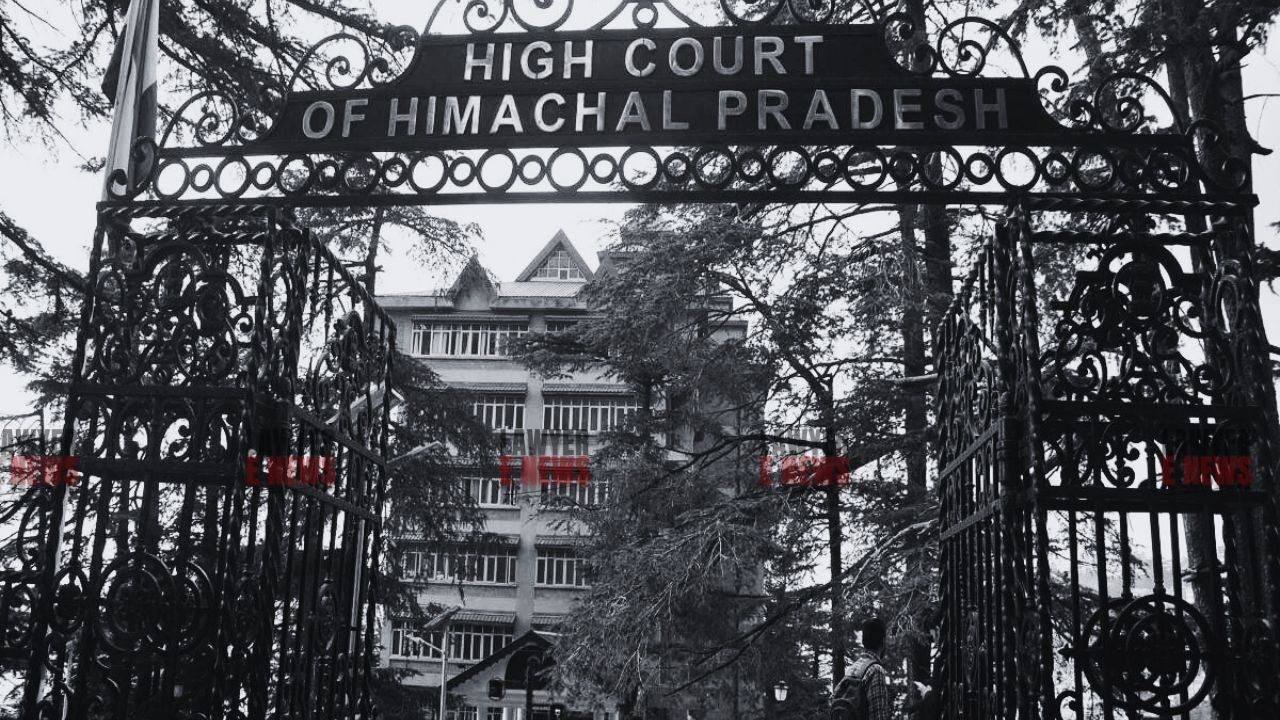-
by Admin
15 February 2026 5:01 PM



Himachal Pradesh High Court allowed an appeal challenging the conviction of the appellant under Section 376 of the Indian Penal Code (IPC) and Section 6 of the Protection of Children from Sexual Offences Act (POCSO Act). The High Court set aside the conviction and sentence, emphasizing that the prosecution failed to conclusively establish the victim's minority under the hierarchical standards prescribed by Section 94 of the Juvenile Justice (Care and Protection of Children) Act, 2015 (JJ Act).
In V v. State of Himachal Pradesh, the trial court had convicted the appellant for allegedly raping a minor victim, with whom he shared a familial relationship, and sentenced him to rigorous imprisonment for 10 years under the POCSO Act and 7 years under Section 376 IPC. However, the appellate court found that the prosecution failed to establish the victim's age beyond reasonable doubt and noted the consensual nature of the relationship.
The court underscored that determining a victim's minority requires compliance with Section 94 of the JJ Act and Rule 12(3)(a) of the Juvenile Justice Rules, 2007. It reiterated the hierarchy of evidence:
Matriculation certificate or equivalent certificate (if available).
Date of birth certificate from the school first attended.
Birth certificate issued by a municipal authority or gram panchayat.
In this case, the prosecution relied solely on a birth certificate issued by a gram panchayat to prove the victim's age. However, evidence revealed that the victim had studied up to Class 9, making her school records the primary evidence under the JJ Act. The prosecution failed to procure the school certificate, and the court found reliance on the birth certificate unjustified.
"The trial court erred in relying on the birth certificate when better evidence was available and not procured. In the absence of the school certificate, the victim’s minority could not be conclusively established, and the prosecution’s case collapses on this foundational issue."
Both the victim and her mother testified during the trial that the victim was over 18 years of age at the time of the alleged incident. The victim admitted to being in a consensual relationship with the accused and explicitly denied being raped. The court observed that the prosecution failed to prove the victim’s minority or lack of consent, rendering the charges under Section 376 IPC and Section 6 of the POCSO Act unsustainable.
Court’s Observation: "In the absence of evidence establishing the victim’s minority and considering her consent, no offence under Section 376 IPC or Section 6 of the POCSO Act is made out against the accused."
The trial court had relied on the victim’s statement recorded under Section 164 of the CrPC to convict the appellant. However, the High Court clarified that such statements are not substantive evidence and can only be used to corroborate or contradict the testimony given in court. Since the victim turned hostile and denied the allegations, the Section 164 CrPC statement could not be used as the sole basis for conviction.
"The learned trial court erred in treating the victim’s Section 164 CrPC statement as substantive evidence. When the victim turned hostile and denied her statement, the trial court’s reliance on it was misplaced."
The court noted significant lapses in the investigation, particularly the failure to collect the victim’s school records or other primary evidence for age determination. The court issued the following directions to ensure compliance with Section 94 of the JJ Act in future cases:
Director General of Police: Issue instructions to investigating officers to collect evidence of age in the order of priority prescribed under the JJ Act.
Director of Prosecution: Ensure compliance with Section 94 of the JJ Act before commencing trials.
The court emphasized that investigating officers must document the unavailability of higher-order evidence in the charge sheet if such evidence cannot be obtained.
The Himachal Pradesh High Court allowed the appeal and set aside the appellant’s conviction under Section 376 IPC and Section 6 of the POCSO Act. The court directed the refund of any fine deposited by the appellant after the period of limitation for filing an appeal expires.
"The prosecution has failed to establish the victim’s minority or lack of consent. In such circumstances, the appellant cannot be held guilty of the offences alleged. The judgment of the trial court is unsustainable and is accordingly set aside."
Date of Decision: December 6, 2024
